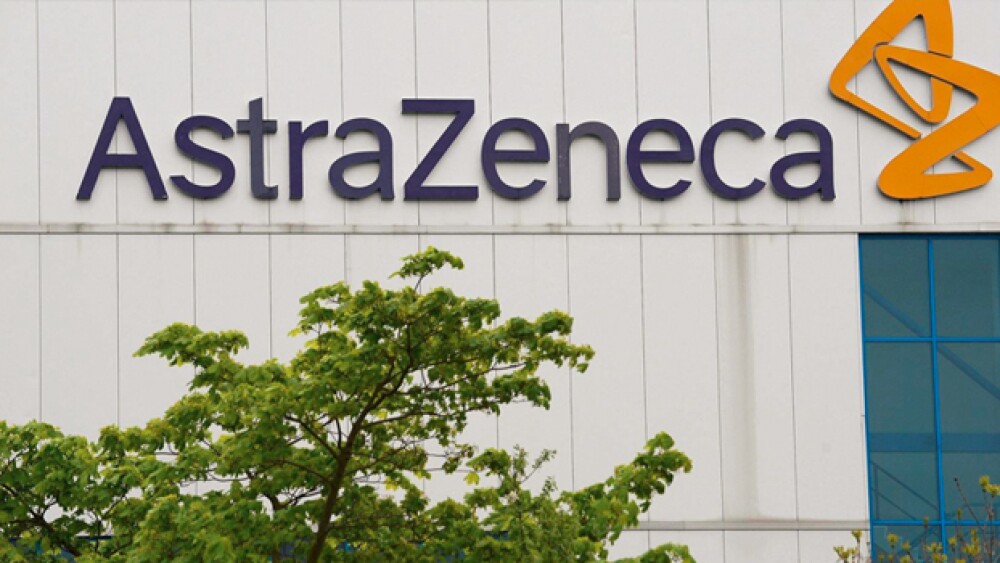AstraZeneca announced that after a recommendation from an independent Data Monitoring Committee, it was abandoning its Phase III STRENGTH trial for Epanova (omega-3 carboxylic acids) for mixed dyslipidemia (MDL).
AstraZeneca announced that after a recommendation from an independent Data Monitoring Committee, it was abandoning its Phase III STRENGTH trial for Epanova (omega-3 carboxylic acids) for mixed dyslipidemia (MDL). Epanova is a fish oil-derived combination of free fatty acids composed mostly of EPA and DHA. It was approved in the U.S. as an adjunct to diet to decrease triglyceride levels in adults with severely high triglycerides. That indication wasn’t changed by the data from the STRENGTH trial.
STRENGTH was a large-scale, global cardiovascular outcomes trial to evaluate the safety and efficacy of Epanova compared to placebo, both in combination with standard-of-care statins. It evaluated the effect of 4g daily of Epanova compared to placebo on decreasing the risk of major adverse cardiovascular events (MACE) in patients on optimal statin therapy with MDL and at high risk of cardiovascular disease. It evaluated 13,086 patients at 675 sites in 22 countries.
“It was important to assess the potential benefit of Epanova in mixed dyslipidemia,” said Mene Pangalos, executive vice president, AstraZeneca’s BioPharmaceuticals R&D. “We are disappointed by these results, but we remain committed to addressing the needs of patients in the cardiovascular space where we have an extensive pipeline.”
AstraZeneca picked up the drug when it acquired Omthera Pharmaceuticals in 2013.
“Epanova would have rounded out Astra’s growing suite of differentiated cardiovascular disease assets,” Andrew Baum, an analyst at Citi, wrote in a note to investors. He mentioned the company’s Brilinta for heart disease, Farxiga, a diabetes therapy that’s also approved for heart failure, and roxadustat, for anemia.
AstraZeneca’s exit from the fish oil drug trial largely leaves Amarin Corporation’s Vascepa (icosapent ethyl) as the only fish-oil drug to not only treat high triglycerides, but to decrease the risk of first and subsequent heart attacks, strokes and heart problems. In its clinical trials, Vascepa decrease those risks by 30%.
Although derived from fish, Vascepa is not fish oil. It is made up of the omega-3 acid (EPA) in ethyl-ester form. It was designated a new chemical entity by the U.S. Food and Drug Administration (FDA).
Another company in the market space, Acasti Pharma, also reported a failure today. Its own fish oil-based candidate, CaPre (omega-3 phospholipid) for severe hypertriglyceridemia, announced topline data from its Phase III TRILOGY 1 trial. Although it reported a 30.5% median reduction in triglyceride levels compared to 27.5% in the placebo group at 12 weeks, as well as a 42.2% decrease in patients on background statins compared to 31.5%, because of an unexpectedly large placebo response, the trial did not reach statistical significance.
“Compared with baseline, triglyceride levels in subjects receiving CaPre were substantially lower at 12 and 26 weeks in the CaPre arm, with 30.5% and 37.5% lower levels, respectively,” said Dariush Mozaffarian, a cardiologist and Dean and Jean Mayer Professor at the Tufts Friedman School of Nutrition Science and Policy and professor of Medicine at Tufts Medical School, and principal investigator of the study. “However, their reductions were accompanied by larger than expected declines in triglyceride levels in the placebo group, which remain unexplained and highly unusual. Initial analyses suggest no protocol deviations in treatment allocation, capsule contents, laboratory quality control, or mismatched randomized that could explain these highly unusual placebo results.”
The company expects to continue studying the data hoping to find an explanation. It is expecting topline data from the TRILOGY 2 trial later this month.
Ami Fadia, an analyst with SVB Leerink, noted that both stories helped Amarin stock. “We believe AstraZeneca’s Epanova is now all but eliminated as a potential threat to Vascepa, and the perplexing results of Acasti’s CaPre raise questions of its potential regulatory pathway,” she wrote in a note to clients.





